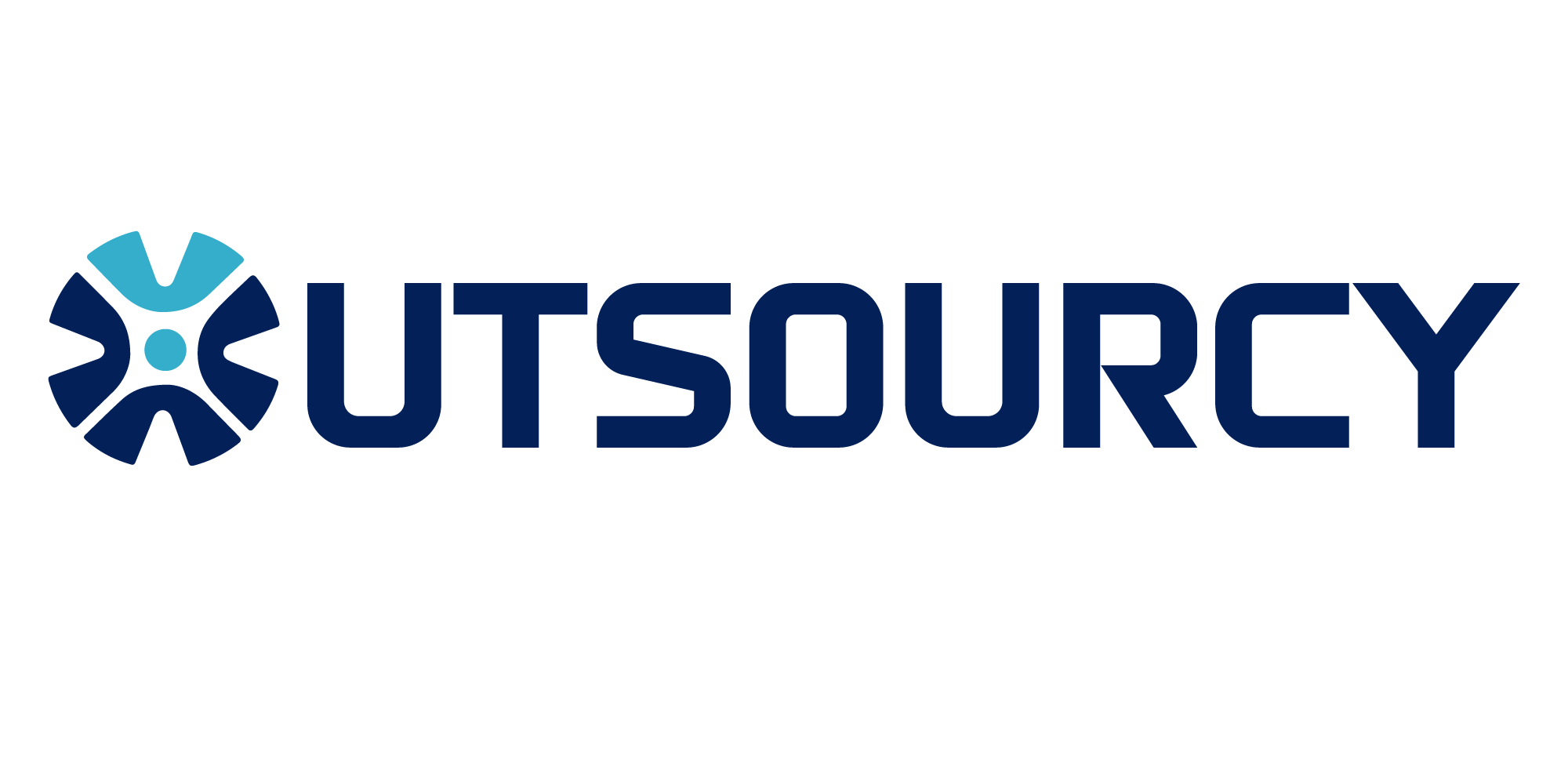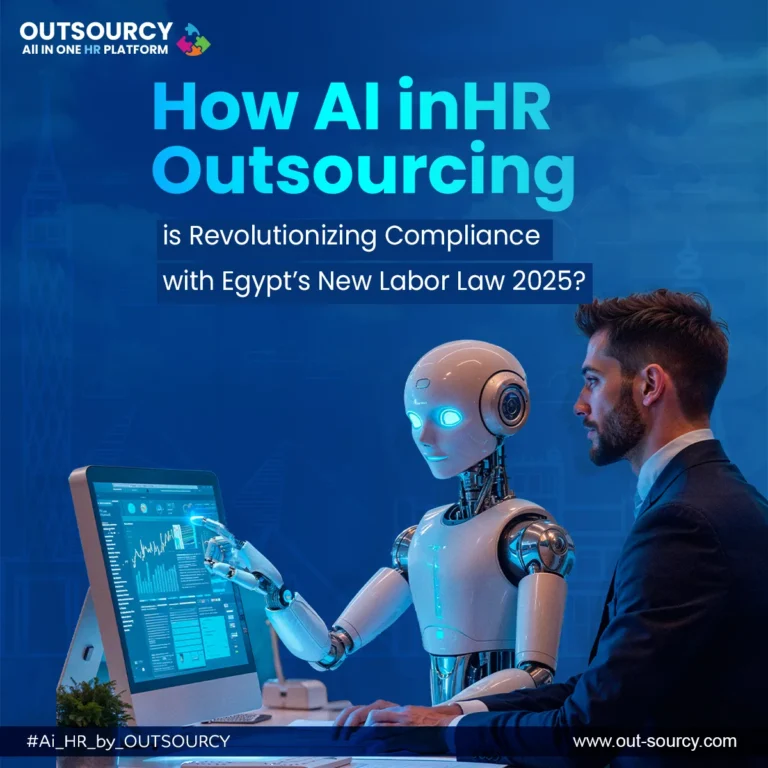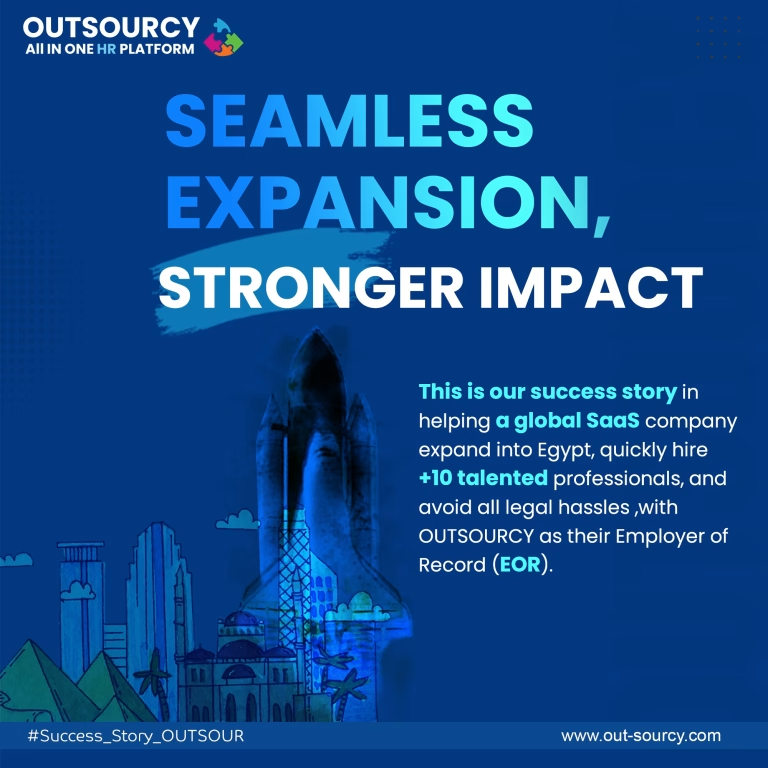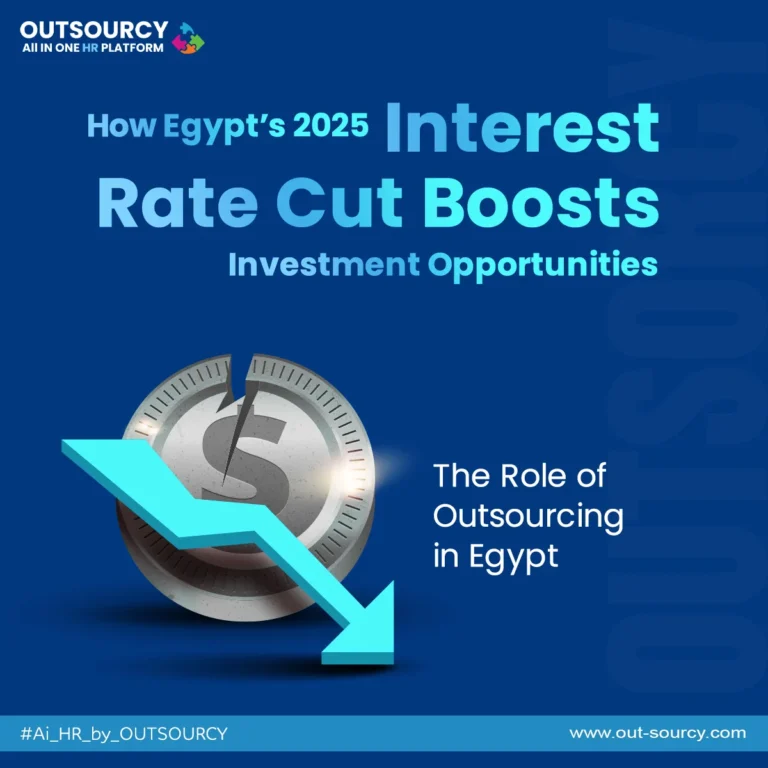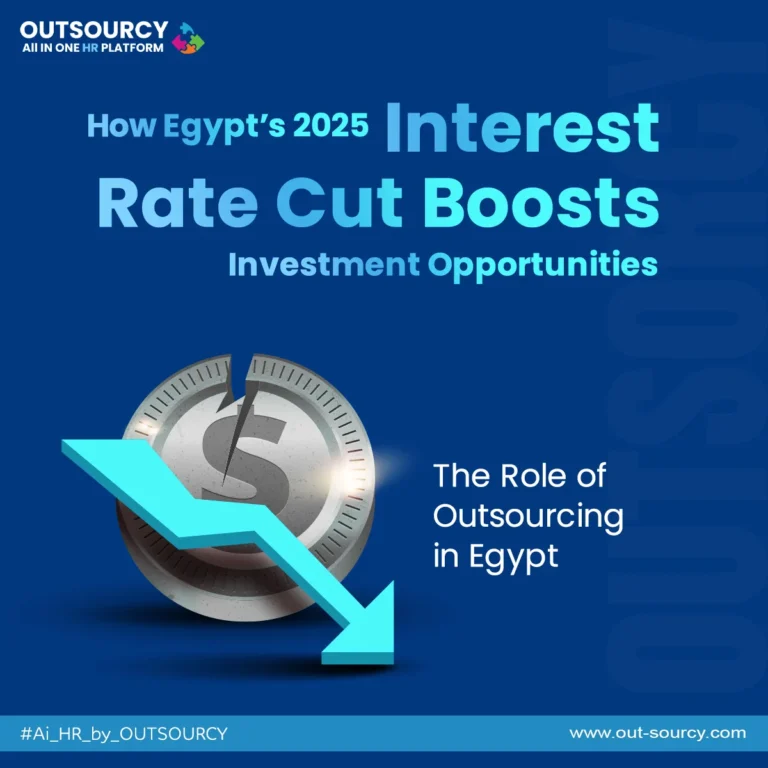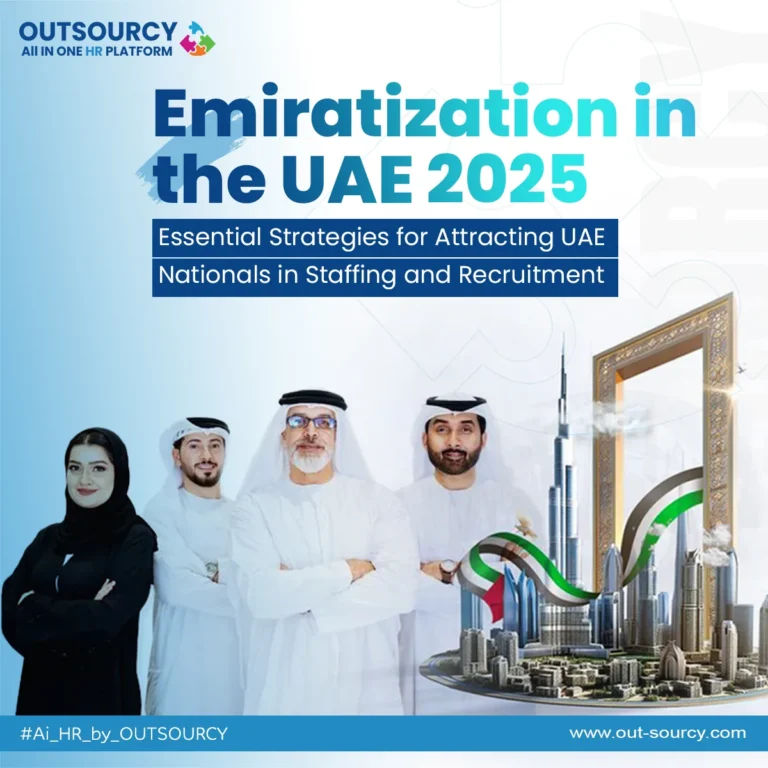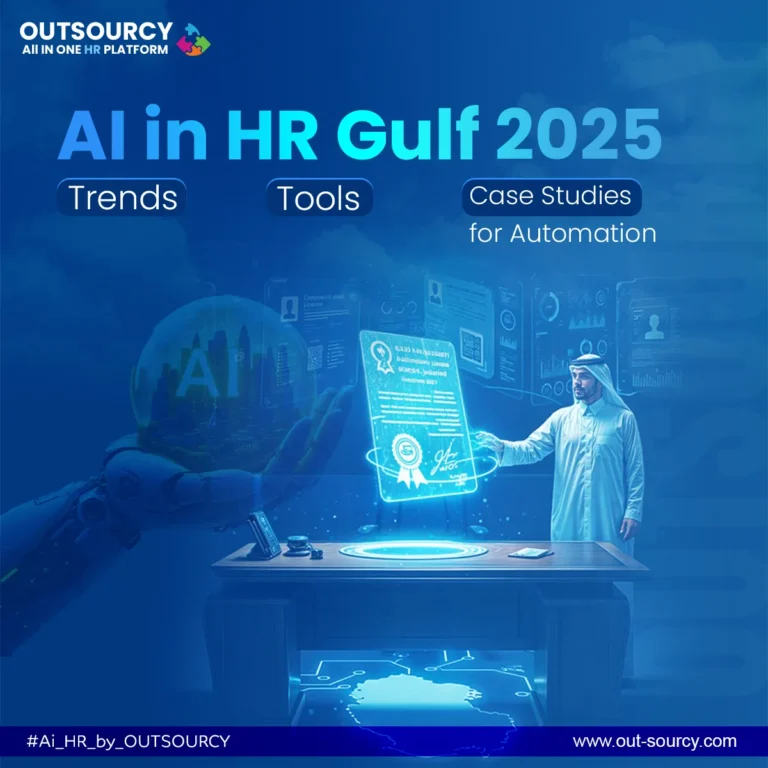With Egypt’s New Labor Law 2025 taking effect in September 2025, businesses face challenges like automated compliance and increased annual leave to 30 days. Non-compliance could result in fines up to EGP 50,000, according to the Ministry of Manpower. AI in HR Outsourcing offers smart solutions to streamline processes and reduce risks by 80%, per Forbes. This article explores how AI transforms HR Outsourcing, with regional comparisons, investment impacts, and practical tips for businesses.
Details of Egypt’s New Labor Law 2025: Challenges Requiring AI Solutions
Egypt’s New Labor Law 2025 replaces Law No. 12 of 2003, defining “worker” (a person working for wages under employer supervision) and “employer” (a natural or legal person employing workers). It mandates indefinite-term contracts as the default, allows temporary contracts up to 5 years, prohibits wage withholding without legal basis, and requires payment of dues within 7 days of termination. It also ensures worker rights, such as 4-month maternity leave, bans arbitrary dismissal, and mandates social insurance registration from day one, with fines up to EGP 50,000 for non-compliance. Here’s a comparison:
Key Change | Old Law (2003) | New Law (2025) | Business Impact |
|---|---|---|---|
Daily Working Hours | 8 hours | 7 hours with additional leave | 10% cost increase, overtime compensation at 35% or substitute leave |
Annual Leave | 21 days | 30 days after 10 years of service | Improves retention but requires payroll restructuring |
Remote Work Rights | Unspecified | Mandatory for hybrid work, electronic worker file | Expands hiring, tax risks |
Digital Compliance | Manual | Electronic via government platforms | Requires HR process automation, fines up to EGP 50,000 |
AI in HR Outsourcing automates compliance, reducing processing time from weeks to hours, per Gartner.
Comparing Egypt’s Labor Law 2025 with Arab Countries: Global Market Alignment?
Egypt’s New Labor Law 2025 aligns with regional reforms to enhance social protection and attract investment. In Saudi Arabia, Royal Decree M/44 of 2025 defines temporary labor and outsourcing, raises the retirement age to 65, and increases insurance contributions by 2%, supporting Vision 2030. The UAE focuses on standardized private-sector contracts and exemptions for foreign workers to attract global talent. Jordan’s 2024 amendments emphasize temporary contract protections and women’s rights. Compared to ILO standards, Egypt’s law aligns with conventions like child labor bans (138, 182) and workplace safety, but lacks detailed remote work regulations compared to EU’s GDPR, requiring future updates.
Country | Key 2025 Amendment | Global Market Alignment |
|---|---|---|
Egypt | Increased leave, digital compliance | Aligns with ILO, needs remote work updates |
Saudi Arabia | Retirement age to 65, temporary labor support | Supports Vision 2030, investment-friendly |
UAE | Standardized contracts, foreign worker exemptions | Aligns with global hiring standards |
Jordan | Women’s rights, temporary contracts | Partial alignment, focuses on equality |
How AI Transforms HR Outsourcing Services
AI in HR Outsourcing revolutionizes core services to meet Egyptian and global market needs:
Payroll Outsourcing and Tax Management
AI tools track tax and insurance changes, ensuring 99.9% accuracy and 20% cost savings, per HR.com.
Legal Compliance
Natural Language Processing (NLP) algorithms review contracts for compliance with Egypt’s New Labor Law 2025, reducing risks by 80%, per Deloitte.
Global Recruitment
AI analyzes millions of resumes, cutting hiring time to 5 days and supporting hybrid work, per LinkedIn.
Employer of Record (EOR)
AI monitors cross-border regulations, enabling expansion in Egypt without a legal entity in 10 days, per SHRM.
HR Operations
Automation of Onboarding and Offboarding reduces processing time by 70%, boosting productivity by 85%, per HR.com.

Why HR Outsourcing is Critical in 2025
The complexity of Egypt’s New Labor Law 2025 makes HR Outsourcing essential for automating electronic reporting, contract reviews, and avoiding fines up to EGP 50,000. Outsourcing cuts administrative costs by 25% and enhances retention in a competitive market, per Deloitte. AI-driven tools like chatbots and predictive analytics improve employee experience and support global hiring.
Does Egypt’s Labor Law 2025 Encourage Investment?
Egypt’s New Labor Law 2025 boosts investment by protecting worker rights (e.g., 4-month maternity leave, no arbitrary dismissal) while offering flexible temporary contracts, increasing foreign investment by 20%, per Egypt Investment Authority. Locally, a non-regular labor support fund enhances trust and reduces legal risks, improving Egypt’s global investment ranking. Specialized labor courts from October 2025 ensure transparency, per ITIDA.
Benefits of AI in HR Outsourcing
- Risk Reduction: AI prevents errors, saving millions in fines.
- Cost Savings: Reduces HR costs by 25%, per Gartner.
- Employee Experience: Instant support boosts retention by 15%.
- Regional Growth: Supports expansion in Saudi Arabia and UAE.
- Predictive Needs: Closes 25% digital skills gap.
Practical Tips for Leveraging AI in HR Outsourcing
- Audit HR processes to identify automation opportunities.
- Choose an AI-integrated HR Outsourcing provider.
- Monitor legal updates via ITIDA or ZenHR.
- Train teams on AI tools.
- Start before January 2026 to avoid challenges.
Why OUTSOURCY is Your Ideal HR Outsourcing Partner
OUTSOURCY combines local expertise with AI-driven solutions:
- Payroll Outsourcing: 99.9% accuracy, saving Srina Tech 20% in costs.
- Compliance Outsourcing: 80% risk reduction for Egypt’s New Labor Law 2025.
- Global Recruitment: 5-day hiring for clients like Virtual Networx.
- Employer of Record: Expansion for Whitero in 10 days.
- Manpower Outsourcing: “OUTSOURCY achieved our goals swiftly,” says Hesham El Sheikh, Modern Gas.
Serving over 1,000 companies with 98% satisfaction (2025 surveys), OUTSOURCY turns HR challenges into growth opportunities. Contact us for a free consultation via our services page.
